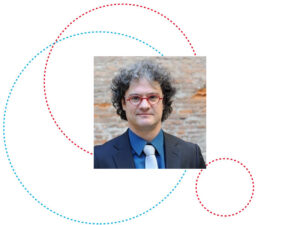Interview with Dr Christophe Haunold
The University of Luxembourg has created a new central Office for Partnership, Knowledge and Technology Transfer (PaKTT) and appointed Dr Christophe Haunold as its head. The office aims to foster the University’s partnerships with industrial and public partners and transfer the University’s high-quality research results to create value for society and businesses. The University’s Faculties and Interdisciplinary Centres have already launched several significant partnerships, proof of concepts and spin-off companies. The PaKTT office provides central management and support, an interface for industrial and public stakeholders and bundles existing activities in the spirit of a distributed system to support researchers in all areas.
In an interview, Dr Christophe Haunold talks about the University’s history of knowledge and technology transfer, about the projects in progress and how the pandemic has impacted the work of the new office.
What does knowledge and technology transfer look like at the University?
Since its creation, the University of Luxembourg has gone to great lengths to develop its research activities in partnership with industry and public organisations. Through these partnerships, the University experiences the industrial and societal challenges that increasingly require interdisciplinary and intersectoral approaches. The University’s culture of partnership and knowledge and technology transfer is many-faceted.
Chairs such as the ArcelorMittal Chair of Steel Construction, the SES Chair in Satellite Communications and Media Law, the PayPal PEARL Chair in Digital Financial Services, the Chair Ville d’Esch on Urban Regeneration, are emblematic examples for the links of the University to industrial and public partners. More broadly speaking, private-public-partnerships (PPPs) are another important instrument of partnership, often co-funded by the Luxembourg National Research Fund (FNR) through their BRIDGES or Industrial Fellowships projects and the R&D Innovation programmes of the Luxembourgish Ministry of Economy.
Knowledge transfer through intellectual property (IP) licensing has also been developed with existing companies or through spin-off creations which is a riskier endeavor, bearing technological, market and financial risks, often necessitating intermediate phases of proof of concept, demonstration, validation and maturation. The University has made significant progress in this area within the last six years. I have discovered very exciting research valorisation initiatives and spin-offs, like Motion-S (the University’s first spin-off), Databourg, LuxAI, LetzMath and OrganoTherapeutics in the fields of mobility, environmental monitoring, robotics, education or drug discovery. The University uses IP rights and protection including patent applications to create value and assets in these innovative companies.
What’s on the agenda for the PaKTT office in the future?
The University is currently developing a policy for partnerships in consultation with the Faculties and Interdisciplinary Centres, which will leverage the strengths and expectations of all entities. Future research projects will be based on disciplinary skills but also focus on more holistic challenges such as health, digitalisation, sustainable development and the mostly untapped potential in social sciences and humanities. We are currently working on very promising interdisciplinary spin-off projects relying on technological fields and the know-how of social sciences and humanities. The projects address topics like cognitive assessments – invaluable tools for understanding the role of specific brain functions across a range of disorders and syndromes – and automatic compliance checking to simplify the screening of business processes and legal documents for GDPR compliance.
How has the COVID-19 pandemic impacted your work?
Developing partnerships and knowledge and technology transfer is a contact sport. Obviously, the situation strongly affects our activities. I could not meet as many partners as I would have wished, particularly on the industrial side. Remote meetings are a temporary solution, but the quality of the exchange necessarily suffers compared to face-to-face meetings, as many fine signals are lost. As a newcomer, it has been painful having to postpone too many physical encounters with essential people including researchers, colleagues, partners, public agencies and government organisations, even if I was remotely introduced to the major players of the innovation eco-system. As for the innovative activity at the University, we are concerned that due to intrinsic momentum of projects, the pandemic negative effect will be only be felt next year. Some projects have been slowed down, and we already notice a slight decrease in the number of new inventions and patent applications, for instance.
But the COVID-19 crisis has also shown that extraordinary circumstances create new opportunities and push us to innovate collaborative skills with new communication tools. The pandemic has also clearly demonstrated the importance and effectiveness of technology transfer from public research to solve major social and health issues.
